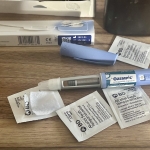UK: A Bitter Pill for the World's Poor
In a tiny village in Bihar, in northern India, a young man of 17 was sitting outside his house. He was shaking and sweating profusely, the whites of his eyes were yellow, and his spleen was found to be enlarged. He was suffering from leishmaniasis, known once to the British as dum dum fever and today in India as kalaazar. Untreated, the illness attacksthe immune system until the victim succumbs to some opportunistic infection -- most likely tuberculosis -- and dies.
The young man had tried to get treatment, despite his family's poverty. His father was a rickshaw puller, so every penny the family had was laboriously earned. They had spent several months' income on treatment, but the young man had been given a drug that had lost itseffectiveness. Now there was no money and no more treatment.
It is a story repeated daily in towns and villages across the developing world. Whatever the recorded cause of death - leishmaniasis, tuberculosis, pneumonia -- the real cause is poverty. Poor people in tropical countries are at risk from a range of diseases for which they cannot get treatment -- either because medicines are available at prices they cannot afford or, worse still, because no medicines are available.
The most common treatments for leishmaniasis were discovered by British
doctors in the closing years of British rule. They applied their minds to leishmaniasis
because they needed to keep their soldiers healthy. For the same reason,
the US invested in malaria research during the Vietnam war. But when there is no
pressing military or colonial imperative, the developed world loses interest in
tropical diseases. Multinational pharmaceutical companies neglect the
diseases of the tropics, not because the science is impossible but because there
is, in the cold economics of the drugs companies, no market.
There is, of course, a market in the sense that there is a need: millions of people die from preventable or curable diseases sense that, unlike Viagra, medicines for leishmaniasis are needed by poor people in poor countries. Pharmaceutical companies judge that they would not get sufficient return on research investment, so why, they ask, should we bother? Their obligation to shareholders, they say, demands that they put the effort into trying to find cures for the diseases of affluence and longevity -- heart disease, new compounds drug companies have brought to the market in recent years, fewer than 1% are for tropical diseases.
We could just shrug, of course, and say that's what you get for being poor. Or, if we were feeling more charitable at the dawn of the new millennium, we could post off a batch of (probably outdated) medicines and feel better. The companies have their own equivalent of those care packages in donation programmes -- short-term gestures that look good in the annual report. They can also be cited to counterbalance charges of neglect or of dumping drugs in developing countries that cannot be marketed where regulation is more stringent. (That is so widespread that there is a grim little joke in the industry: if there are no side effects, they say, it must be Honduras.) The trouble with charitable gestures is that they are only gestures. If we want to have an effect, something more systematic is required.
Why should we? Because, as the economist Jeffrey Sachs points out, it is
no good waiting for developing countries to attain the degree of affluence that would allow them to buy themselves an effective health service, equipped with the medicines we take for granted. The fact is that ill health in tropical countries is a huge drag on development, and without intervention in health, other aid is the less effective.
And who should intervene? The pharmaceutical companies have the capacity to do so, as well as a moral debt that they have not begun to pay. But it is unrealistic to suppose that they act without public stimulus. The World Health Organisation has the public authority but not the technical capacity. As a
partnership, the industry and international public health bodies could make a
significant difference, if they were prepared to set aside, respectively,
corporate greed and bureaucratic complacency.
There are signs of a change of approach at the WHO, as the impact of the arrival of the former Norwegian prime minister, Gro Harlem Bruntland, is felt. For the first time in years, the organisation is displaying energy and initiative. How far this will go, though, will depend on how the industry responds.
In the corporate headquarters of major drug companies, the public relations
posters display the image they like to present: of caring companies that bring
benefit to humanity, relieving the suffering of the sick. What they don't say, is that, so far, their humanity has not extended beyond the limits of the pockets of the sick.
- 122 Pharmaceuticals



